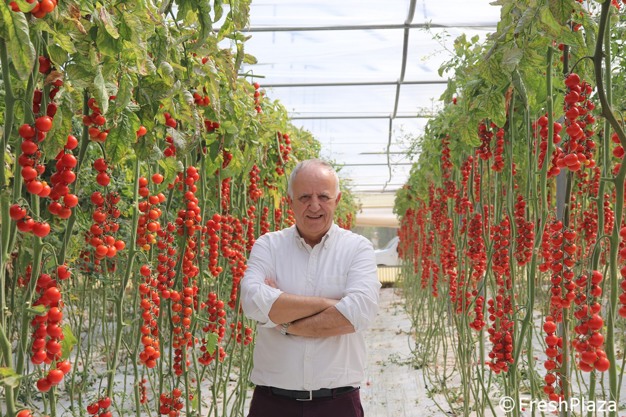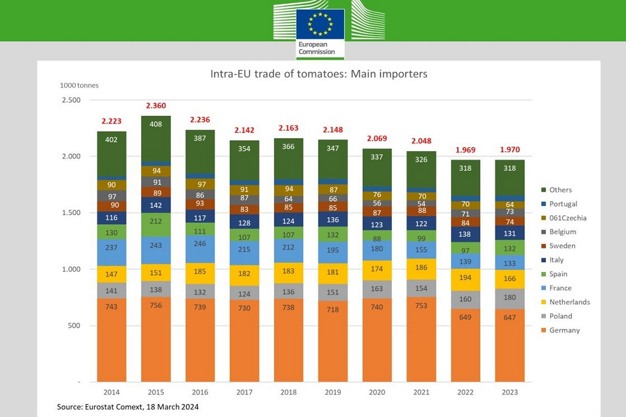The stagnation of the German economy is a major concern for Italian fruit and vegetable traders. Germany has always been the most important market for Italian products. There are many uncertainties and questions on the horizon: what can happen to Italy if the German economy is in recession? If the purchasing power of the average German citizen continues to decline, how and where will Italian products be marketed? And where will Germany get its supplies from? Will Italian supplies be able to compete with the more competitive Maghreb, Turkey and new players such as Albania?
This is what Massimo Pavan, an agronomist from Veneto who has long since moved to Sicily, where he runs a company that produces and markets carrots, tomatoes and other horticultural products, explains in a recent interview.
 Massimo Pavan
Massimo Pavan
'We are facing a completely new scenario," says Pavan. "One that no one could have predicted. Germany, the locomotive of Europe, has more than a few financial problems. There's already talk of a recession, something Germany hasn't experienced since the Second World War, at least as far as I can remember. The crisis in Ukraine and the resulting rise in the cost of living, which, let us not forget, comes on top of the pandemic, has made companies reluctant to invest: we are on the verge of a paradigm shift."
 The chart above shows that Germany is the largest importer of tomatoes in the EU. Since 2022, with the start of the crisis in Ukraine, imports have been on the decline. (Source: European Commission).
The chart above shows that Germany is the largest importer of tomatoes in the EU. Since 2022, with the start of the crisis in Ukraine, imports have been on the decline. (Source: European Commission).
"Germany's GDP is on the decline. Without going into the figures, it is clear that the situation is worrisome," explains the expert, "also in view of the fact that Germany is the number one destination for our fruit and vegetables in terms of volume and value. Looking ahead, the forecasts made by the experts do not bode well. The year 2023 ended in recession, as so will 2024. There is a glimmer of hope for 2025, with an assumed growth of 0.9%, lower than the previous forecasts of 1.5%, and there is already talk of a structural crisis."
"Hopefully, things will not get any worse," says Pavan, "but we must not get caught off guard and focus our work on improving quality standards, on the one hand, and on streamlining production costs through innovation, on the other. The main objective is to remain competitive in this new scenario, otherwise we will be facing very difficult times ahead."
For more information:
Massimo Pavan
[email protected]
